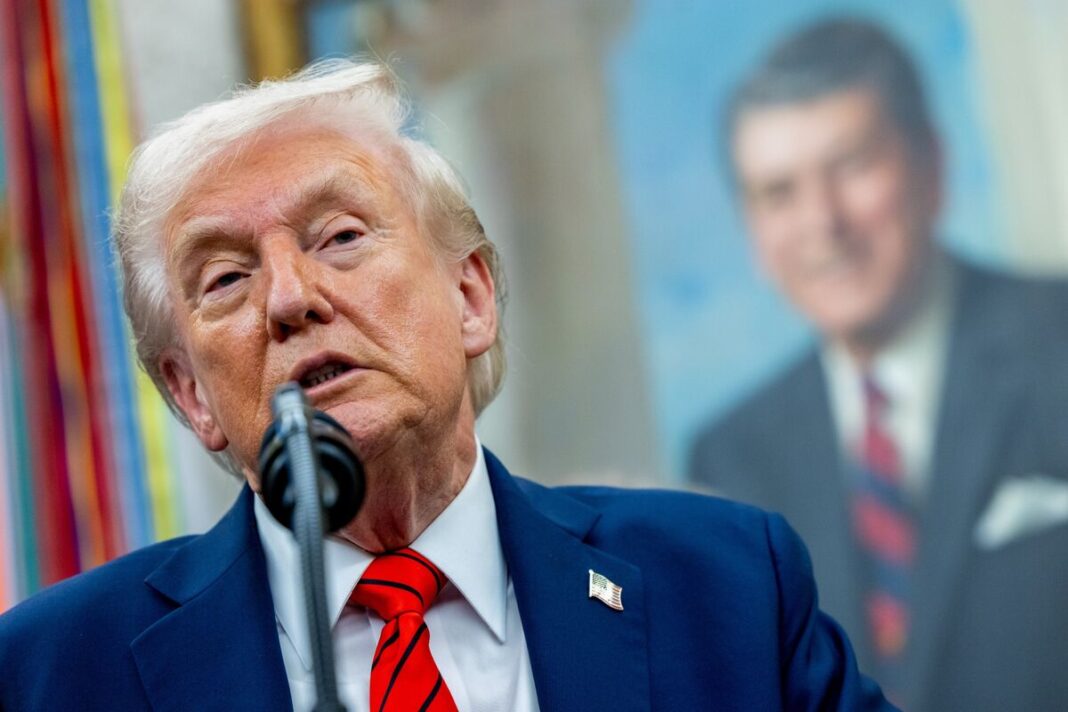The Art of the Deal: Trump’s One-to-One Diplomacy
President Donald Trump distinguished himself in the political arena with a bold approach to diplomacy characterized by his preference for one-on-one negotiations. This preference, imbued with a self-proclaimed “dealmaking magic,” has been both celebrated and criticized in equal measure. However, the recent tensions surrounding the trade relationship with China have illuminated the inherent fragility of this personalized approach.
A New Era of Diplomacy
When Trump assumed office, he made it clear that traditional diplomatic norms were not to be his forte. His approach centered on direct, personal negotiation rather than multilateral dialogues or established alliances. This shift represented a break from the diplomatic norms that had governed U.S. foreign relations for decades. Trump’s rationale was straightforward: fewer parties meant clearer deals. He believed that personal relationships could lead to more favorable outcomes for America, asserting that his business acumen would translate effectively into international relations.
The China Trade Truce
One of the cornerstones of Trump’s foreign policy has been his dealings with China, a relationship defined by dramatic fluctuations and mutual animosity. Initially, Trump showcased a willingness to engage China on a personal level, meeting with President Xi Jinping in a series of highly publicized summits. Here, the idea was to strike a “deal” that would favor U.S. interests—particularly in trade balances and intellectual property rights. These moments seemed to promise a new chapter in U.S.-China relations, highlighting Trump’s belief that personal rapport could yield advantageous arrangements.
The Pitfalls of Personal Diplomacy
However, the current state of the U.S.-China trade relationship reveals deep vulnerabilities in Trump’s one-to-one diplomatic strategy. The so-called trade truce has shown signs of instability, with tariffs and trade barriers remaining contentious issues. Rather than achieving a comprehensive agreement, the negotiations often resembled a series of short-lived truces that could easily unravel under pressure. This fragility calls into question the efficacy of Trump’s transactional approach, which tends to undervalue the complexities and intricacies inherent in international relations.
The Role of Domestic Politics
Additionally, domestic political dynamics further complicate Trump’s dealings with China. The American political landscape is rife with polarization, influencing how trade negotiations are perceived both by lawmakers and the public. Critics argue that focusing too heavily on personal relationships can obfuscate the myriad interests and concerns that must be addressed in trade agreements. Domestic pressures, including bipartisan fears regarding China’s growing influence, place further strain on one-to-one negotiations, often forcing Trump to recalibrate his positions in response to internal dissent.
Global Reactions and Strategic Alliances
Moreover, Trump’s approach has significant implications for how other nations view U.S. leadership on the global stage. Allies may feel sidelined or ignored, especially when critical issues are resolved through direct negotiations without their input. This trend can weaken long-standing alliances and create an environment where allies feel they must protect their interests unilaterally, potentially fostering a more isolated and transactional U.S. in international affairs.
The Future of Diplomacy
As the trade relationship with China continues to be challenged, the question arises: what does this mean for the future of U.S. diplomacy? The ongoing volatility seems to indicate that one-to-one negotiations, while appealing for their simplicity, may not be sustainable in an interconnected world. The complexities of modern global trade require a more nuanced approach, recognizing that lasting agreements often necessitate broader consensus and a commitment to multilateralism.
Conclusion
In summary, while President Trump’s one-to-one dealmaking approach has allowed for dramatic moments and direct engagements, the current state of international relations—particularly with China—suggests that this method is fraught with challenges. As trade tensions grow, the limitations of personal diplomacy become increasingly apparent, urging a reevaluation of strategies that embrace both personal rapport and broader multilateral frameworks.



